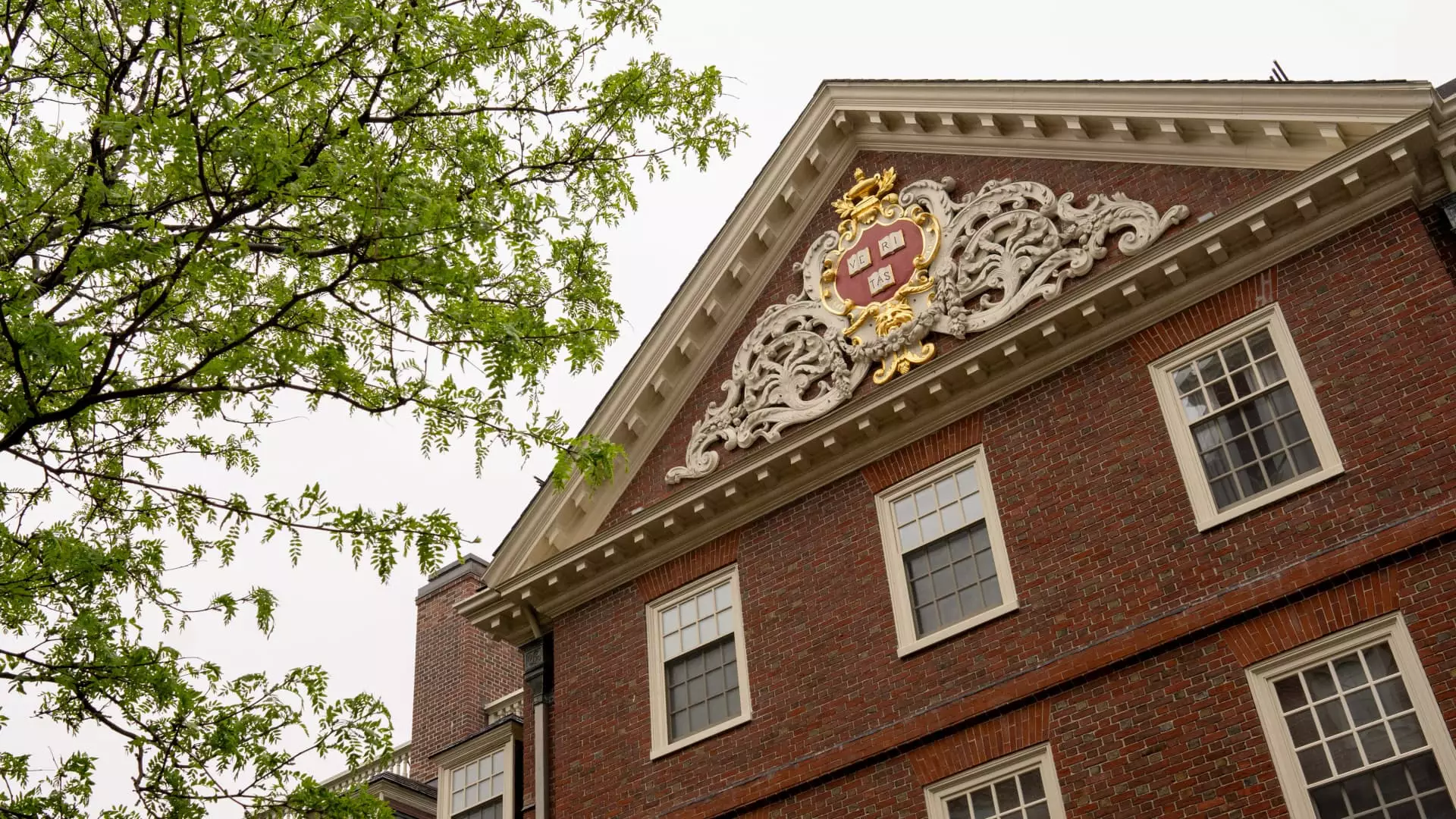In a move that echoes alarm bells across the educational landscape of America, President Donald Trump’s recent suggestion to divert $3 billion in federal grants from Harvard University to trade schools represents a troubling shift in priorities that could reverberate far beyond the walls of this prestigious institution. By making such a dramatic proposal, Trump is not simply engaging in a battle against perceived elitism in education; he is attempting to undermine the very foundations of academic independence and research advancement that are vital to the progress of science, technology, and innovation.
This proposed funding redistribution emerges from an antagonistic stance toward academic institutions that have vehemently disagreed with Trump’s policies. For Trump, targeting Harvard—a symbol of elite education that has frequently opposed him—is not just an act of political retribution but a calculated move to solidify his base by playing the populist card against the so-called “Ivory Tower.” Such actions threaten the longstanding tradition of academic freedom, deeply entwined with the principles of liberal democracy that our society is meant to uphold.
The Tangible Costs of Disruption
Funding for biomedical research, which comprises the majority of the proposed federal grants slated for Harvard, has been kept afloat by rigorous peer-reviewed processes designed to ensure that only the most critical and impactful scientific inquiries receive financial backing. By freezing these grants and proposing to funnel them to trade schools, Trump risks a derailment of the essential research necessary for medical advancements. This is reckless, as it jeopardizes the progress against diseases and health crises that benefit not just Harvard but society as a whole.
Moreover, the planned redirection of funds implies a fundamental misunderstanding of the distinctions between various types of educational institutions. While trade schools fulfill crucial roles in workforce training and vocational education, they lack the infrastructure, expertise, and capacity to engage in groundbreaking biomedical research. The consequences of this decision could severely hamper progress that takes years, sometimes decades, to develop and is often funded by the very grants Trump seeks to withdraw.
A Broader War on Free Thought
Trump’s ongoing campaign against liberal institutions extends far beyond mere administrative tactics; it is a direct affront to the principle of free thought. By selectively targeting Harvard, Trump’s administration has engaged in a systematic effort to delegitimize academic discourse, framing it as a battle against “Radical Left idiots and ‘bird brains’.” This, for one, diminishes the validity of critical debates that are essential in any academic setting and endorses a chilling atmosphere where ideological conformity is valued over intellectual diversity.
The recent court ruling temporarily blocking the revocation of Harvard’s ability to enroll foreign students highlights a crucial victory not just for the university but for the protection of academic freedom. The potential displacement of over 7,000 international students underlines how intertwined universities are with global scholarship and cultural exchange. Trump’s fixation on domestic views stifles the very diversity that enriches academic institutions and, by extension, society itself.
The Danger in Targeting Elite Institutions
While there may be valid criticisms of academic elitism, attacking established institutions like Harvard, Yale, and others undermines a critical aspect of America’s educational fabric. This battle does not just involve the wealthy institutions; it influences funding, research, and innovation pathways that ultimately benefit the entire nation. Attempts to dismantle the credibility of these institutions can have follow-on effects that range from reduced educational quality to diminished international standing in research and innovation.
In essence, Trump’s crusade against elite universities is less about creating a better education system for all and more about feeding a narrative to energize his political base. This approach denies the complexity of the educational landscape and risks targeting a vital part of America’s intellectual heritage, which has fostered some of the greatest scientific advancements in human history. If we continue down this path of divisiveness, we may find ourselves trapped in an echo chamber, devoid of the varied perspectives necessary for holistic understanding and progress.

Leave a Reply